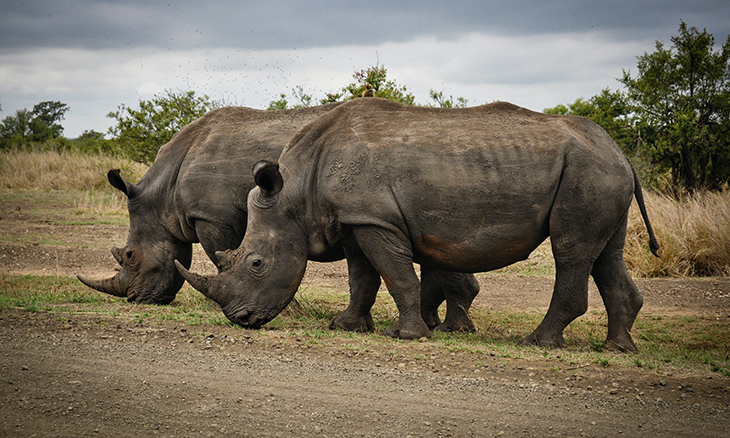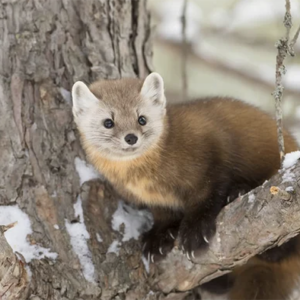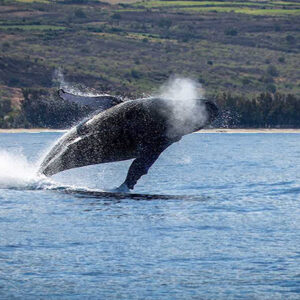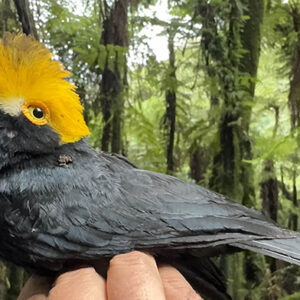
A groundbreaking move to ensure the future of rhinos has been made by African Parks, Africa’s leading conservation organization.
Recently, they acquired the biggest privately-owned rhino herd globally, comprising over 2,000 white rhinos. Their ambitious objective is to reintroduce these rhinos to undisclosed locations over the next decade, aiming to protect these magnificent creatures and combat the illegal rhino horn trade threatening their survival.
Originally, this rhino herd was part of a significant breeding project known as “Platinum Rhino,” with the aim of ethnically and sustainably flooding the East Asian rhino horn market. The idea was to diminish the economic incentive for poaching by reducing the price of rhino horn. The mastermind behind this endeavor was South African breeder John Hume, who had successfully bred over 2,000 white rhinos in captivity.
However, a major obstacle emerged. The Convention on International Trade in Endangered Species (CITES)remained steadfast in its ban on rhino horn trade, a prohibition in place since 1974. Despite Hume’s determination, financial constraints hindered the continuation of the Platinum Rhino project.
Faced with the challenge of ensuring the welfare of these thousands of rhinos, Hume took a pivotal step. In April, he made the bold decision to put the entire rhino herd up for auction, initiating a turning point in the world of rhino conservation.
On August 4th, African Parks, Africa’s largest wildlife NGO, publicly disclosed their acquisition of the entire Platinum rhino herd. This unprecedented endeavor involves rewilding these rhinos across various locations in southern Africa to ensure their protection and survival. African Parks managed to secure substantial emergency funding, enabling not only the purchase of all the rhinos but also facilitating their international relocation within Africa.
This acquisition is particularly crucial because these 2,000 rhinos constitute approximately 15% of the declining population of southern white rhinos. Many of them were bred at Hume’s extensive ranch, while others were taken in due to various distressing circumstances, including being orphaned or abandoned when their mothers’ milk dried up.
African Parks, renowned for managing 22 protected areas across 12 countries, is uniquely equipped for the monumental task of rewilding these rhinos. Their expertise and extensive experience make them the ideal organization to oversee this ambitious project.
A statement released by the organization says, “African Parks has conducted multiple wildlife translocations and reintroductions–moving over 8,000 animals from 32 species to help repopulate parks and re-establish populations across Africa.”
“These efforts have resulted in bringing rhino back to Malawi, Rwanda, and the DRC; as well as bringing lion, cheetah, leopard, and wild dog back to Malawi, along with a historic 500 elephant initiative. Through these wildlife translocations, we have learned and gained valuable experience to consistently refine our approach so that we can ensure a greater likelihood of success for every translocation we undertake,” it adds.
While the road ahead is undeniably challenging, both African Parks and the IUCN Rhino Project, the initiative’s sponsors, recognize the complexity of reintroducing such a significant number of rhinos to the wild.
Dr. Richard Emslie, a prominent rhino conservation expert based in Pietermaritzburg, expressed optimism after observing the Platinum rhinos, suggesting that they are well-suited for this transition to a more natural habitat. This optimism reflects the resilience and adaptability of these magnificent creatures, he told South Africa’s Daily Maverick.
“I would call them ‘semi-wild’ rather than ‘semi-captive’. It’s interesting that some of John Hume’s black rhinos were sent to a property in Eswatini a few years ago—and within just a few months of their arrival one of the females had been mated by a wild rhino,” said Dr. Emslie. “So I strongly suspect his white rhinos will also do fine. Obviously, this will depend on where they are going.”
The acquisition of the Platinum rhino herd by African Parks represents a beacon of hope for rhino conservation efforts in the face of persistent poaching threats and the urgent need to secure a thriving future for these iconic animals. This momentous undertaking underscores the profound commitment of organizations and individuals working tirelessly to safeguard Earth’s diverse and endangered wildlife.
See more about the biggest rhino farm in the video below:
What are your thoughts? Please comment below and share this news!
True Activist / Report a typo


